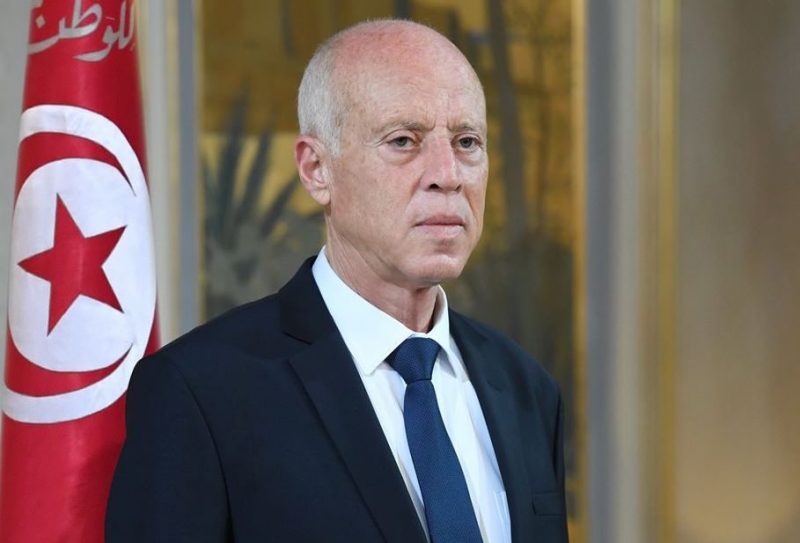The exchange of messages between both countries comes amid ongoing calls for democracy in Tunisia that have been on the rise since 2021’s events.
Qatar’s Amir Sheikh Tamim bin Hamad Al Thani and Tunisia’s President Kais Saied held a phone call on Monday amid ongoing unrest in Tunis.
In a statement, the Amiri Diwan said the leaders discussed bilateral ties and regional developments. Separately, the Tunisian Presidency said Saied thanked Sheikh Tamim for sending Qatar’s Assistant Foreign Minister for Regional Affairs Dr. Mohammed Al-Khulaifi.
“In a call with H.H the Amir of Qatar, President [Saied] expresses gratitude for the sending of Qatari Assistant FM for Regional Affairs and for the Qatari readiness to stand by the Tunisian people in the face of financial difficulties,” the statement read.
It added that the Qatari envoy delivered an oral message from the amir, though no further details were disclosed.
The exchange of messages between both countries comes amid calls for restraint as reports of a crackdown on dissent continue. Mass arrests have targeted politicians, media figures and activists.
Last week, Tunisian police detained Noureddine Bhiri, a senior Ennahda official, after raiding his residence.
Speaking to Reuters, Bhiri’s lawyer Samir Dilou said the police stormed his house and “assaulted his wife.”
In another raid, the police also arrested the head of opposition radio, Mosaique FM, Noureddine Boutar.
“The expansion of the coup authority in harassing opposition figures, journalists, businessmen and trade unionists is evidence of confusion and inability to face crises,” Ennahda, the biggest opposition party in Tunisia, said in a statement.
Rights groups have raised concerns over the deteriorating situation in Tunisia, with Amnesty saying at least 10 people have been detained in a single week.
“Arresting people on vague claims of conspiracy flies in the face of basic human rights. This latest round of arrests is a deliberate attempt to quash dissent including criticism of the president,” Heba Morayef, Amnesty International’s Regional Director for the Middle East and North Africa, said on Friday.
Morayef added that “authorities should focus instead on finding real solutions to help alleviate the suffering of those hit hard by Tunisia’s crumbling economy.”
According to Amnesty, Tunisian authorities “have arrested, investigated or prosecuted at least 32 people in relation to their peaceful criticism” since 2021’s events.
Since coming into power, Saied has been accused of a power coup after suspending parliament, sacking the prime minister and appointing himself general prosecutor.
However, Saied claims his decisions were legal and were much-needed to resolve Tunisia’s state.
At the time, Tunisian security forces stormed Al Jazeera’s office in Tunis and expelled journalists from the premises.
Qatar’s foreign ministry had also called on all parties involved in Tunisia’s political crisis to avoid escalation and engage in dialogue.
Tunisia’s economic situation worsened in the aftermath of the 2011 protests, which saw the overthrow of former leader Zine El-Abidine Ben Ali. The Covid-19 outbreak coupled with the Russian war on Ukraine have also affected the crises-hit country.







